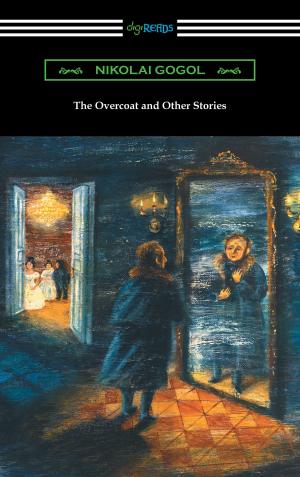| Author: | William Dean Howells | ISBN: | 9781596256569 |
| Publisher: | Neeland Media LLC | Publication: | December 15, 2009 |
| Imprint: | Digireads.com Publishing | Language: | English |
| Author: | William Dean Howells |
| ISBN: | 9781596256569 |
| Publisher: | Neeland Media LLC |
| Publication: | December 15, 2009 |
| Imprint: | Digireads.com Publishing |
| Language: | English |
William Dean Howells (1837-1920) was born in 1837 in Martins Ferry, Ohio, one of ten children to editor and printer, William Cooper Howells. William's early education in the printing office led him to a job as a compositor on the "Ohio State Journal" at age fourteen, and a successful career as an author by his early twenties. His notoriety comes largely from his fifteen years working at "The Atlantic Monthly" as assistant and chief editor, where he influenced the careers of writers like Mark Twain and Henry James. Howells wrote novels, plays, essays, poems, reviews and travel pieces that touched on every day people and their experiences. A prime example of Howell's realism is this 1890 novel; it is a psychologically probing reflection on social and personal upheaval in the nineteenth century, which the author considered to be his "most vital" book. The story interweaves themes, plots and characters in New York City and projects Howells personal attitudes on employers, feminism and marriage, among others.
William Dean Howells (1837-1920) was born in 1837 in Martins Ferry, Ohio, one of ten children to editor and printer, William Cooper Howells. William's early education in the printing office led him to a job as a compositor on the "Ohio State Journal" at age fourteen, and a successful career as an author by his early twenties. His notoriety comes largely from his fifteen years working at "The Atlantic Monthly" as assistant and chief editor, where he influenced the careers of writers like Mark Twain and Henry James. Howells wrote novels, plays, essays, poems, reviews and travel pieces that touched on every day people and their experiences. A prime example of Howell's realism is this 1890 novel; it is a psychologically probing reflection on social and personal upheaval in the nineteenth century, which the author considered to be his "most vital" book. The story interweaves themes, plots and characters in New York City and projects Howells personal attitudes on employers, feminism and marriage, among others.















